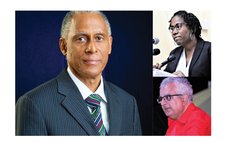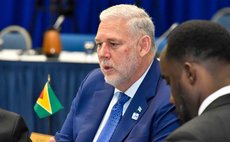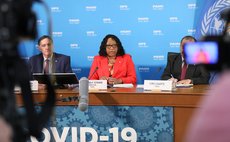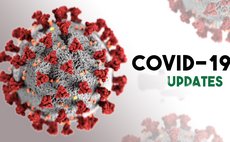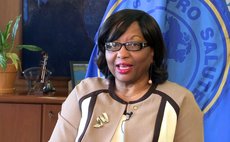COVID-19 Update: Monday, 18 May 2020
Two more positive cases in Barbados; Flights to St. Lucia to resume on 4 June
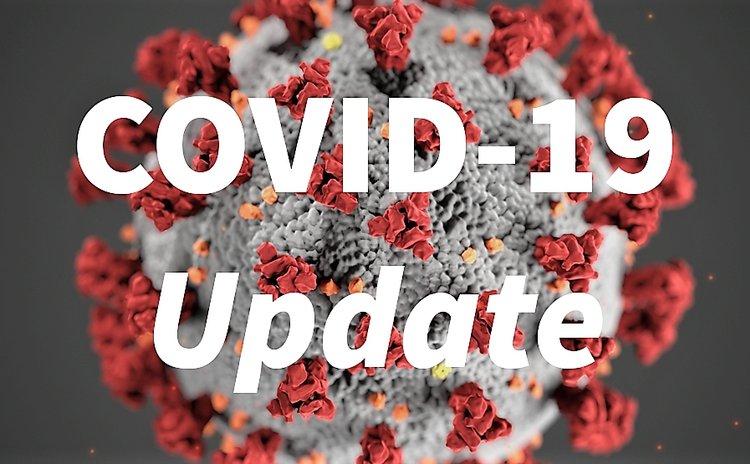
Four Bahamian Out islands resume commercial activity
To date, there remain 96 confirmed cases of COVID-19 in The Bahamas. This 3 includes 74 in New Providence, 8 in Grand Bahama, 13 in Bimini and 1 in Cat Cay. The Ministry of Health reported no additional confirmed cases of COVID-19 today. It has been four days since a confirmed case of COVID-19 has been reported. The number of recovered cases is at 42. Active cases are at 43. There are 7 hospitalized cases.
Four of the Out Islands in the Bahamas official resumed commercial activity today as the Hubert Minnis government further eases restrictions on the country.
In an address to the nation last evening, Minnis said however, while commerce returns to Cat Island, Long Island, Abaco and Andros, the weekday curfews and weekend lockdown measures remain in place, as do physical distancing measures and the requirement to wear masks.
The prime minister also announced plans for the return of international travel by 1 July.
"Our resorts, our airports and our seaports are finalising the health and safety protocols that will be necessary for us to provide for a re-opening," he said. "As of now, we are looking at a possible opening date for commercial travel on or before July 1st. These dates may change depending on the circumstances. I want to repeat however that this date is not final. It will be adjusted if we see a deterioration in the COVID-19 infection trends or if we determine that the protocols and procedures are not in place sufficiently to warrant an opening."
Two more positive cases in Barbados
Health officials in Barbados are reporting two additional confirmed cases of COVID-19, both Barbadian women.
As of the end of the day yesterday there were 88 known cases of the virus in Barbados, 68 have recovered.
According to the health authorities, the two new cases, aged 21 and 35, were both identified through contact tracing.
Belize goes a month without new cases
It's been 35 days since Belize has had any confirmed cases of coronavirus, leaving the number of known positive infections at 18.
"That is quite an achievement, and I want immediately to congratulate all Belizeans, but in particular, to single out the essential service workers, all essential workers and in particular, of course, the frontline workers – doctors, the nurses, all the medical personnel," Dean Barrow, the prime minister, said at a news conference on Thursday when the country had gone 31 days with new positive test results.
Stressing that the ordeal was far from over, Barrow announced that hotel and open-air restaurants can now provide dining at the restaurants so long as those restaurants have outdoor seating facilities and accommodate no more than ten people at any one time.
In addition, he announced that the general public would now be able to go swimming in the rivers and seas, but not at resorts and that churches were allowed to hold services at their facilities but would be limited to ten worshippers.
Regarding the opening of the country's borders, Barrow said he had "no comprehensive answer to give" but that the hope was that the airport could begin receiving international flights round 1 July.
Bermuda eyes tech-quarantine
The government of Bermuda has announced plans to use technology to enforce home quarantine.
The island's premier, David Burt, said the effective use of technology was one of the most important factors to the continued reopening of the country.
"To ensure effective quarantining at home right now, we're having to make use of the Bermuda Police Service who check to ensure that self-quarantine is enforced. Going forward, Bermuda will be procuring a technology solution that will enable strict enforcement of home quarantine. It is hoped that this solution will be in place within the next month so the government quarantine facilities may close," the premier said in an update on the coronavirus situation in Bermuda.
"These new technology solutions can also support the move to regularly scheduled air travel as persons will be required to quarantine upon arrival and will be able to be monitored via technology solutions," he said.
Bermuda has 123 total confirmed positive COVID-19 cases.
Nine new cases in Cuba
Cuba's public health ministry has confirmed an additional nine cases of COVID-19, bringing the number of infections to 1,881 as of the end of the day yesterday.
The nine new confirmed cases were Cuban, according to Granma, the community party newspaper. Of these, four were contacts of confirmed cases, while the source of infection of the remaining five remained unconfirmed.
Cuba has tested 83,868 samples for the contagious respiratory illness.
One more recovery in Guyana
The number of people who have recovered from COVID-19 in Guyana has increased by one.
The department of public information, in a release today, quoted health officials as saying that as of the end of the day yesterday 44 of the 117 confirmed cases had fully recovered, while ten succumbed to the virus.
Guyanese health officials said they have tested 1,164 people for COVID.
Three new imported cases in Jamaica
It would appear that the rapid spike in coronavirus cases that Jamaica had been experiencing in the past weeks have slowed considerably.
Having gone a full 24 hours without a new case last Wednesday, and after six cases on Saturday, the ministry of health is reporting just three positive test results in the past 24 hours.
This brings the total number of confirmed COVID-19 cases in Jamaica to 520, the health ministry said in a release.
The health ministry said all three cases were imported and were among a group of Jamaicans who returned to the island from the United States on Wednesday, 13 May.
"They are all females . . . and they were all asymptomatic at the time of sample collection," the release stated.
In the meantime, it said, six more patients have recovered and have been released from isolation, bringing that total to 127.
Statia prepares to accept returning residents
As the authorities in the Dutch Caribbean island of St. Eustatius – more popularly known as Statia – further relaxes restrictions on the population, the island's Dutch commission¬er, Marnix Vin Rij, has announced that the Queen Beatrix Medical Centre would now be opened to the approximately 3500 residents as of today. The hospital has been accepting only emergency cases since 23 March.
At the same time, Vin Rijsaid Statians stranded abroad would be allowed to return home, by changing the current policy which limits returnees to essential workers or medical referrals.
The commissioner said the island's administrators would increase the number of people allowed in at any one time from 15 to 30 based on the advice of the public health department.
"We cannot let everybody in at the same time. I hope that persons understood this. We understand that it is a big sacrifice for the ones who have been away from home and their loved ones for such a long time," Van Rij said.
The relaxed restrictions now allow for the reopening of non-essential businesses, and for the number of people permitted to gather in one location to be increased from 15 to 25.
Flights to St. Lucia to resume on 4 June
The St Lucia government has announced the resumption of flights to the island on 4 June.
In making the announcement, the island's tourism minister, Dominic Fedee, said it's the first phase of the reopening of the tourism sector, and will include flights from the United States only.
"In anticipation of these first visitors, some 1,500 hotel rooms in Saint Lucia are being prepared to open in early June, pending completion of a new COVID-19 certification process," the tourism ministry said in a release.
Following the onset of COVID-19, St Lucia closed its borders to international travel on 23 March. The island recorded 18 cases of virus, all of whom have fully recovered, according to health officials in Castries.
St. Maarten ends policing of border with French side
Dutch St. Maarten has withdrawn its police officers from the border with the French side, making it possible for its residents to freely cross the internal border once again.
However, with the French gendarme still patrolling the crossing, residents of the Dutch side, who travel to the French side for business, work, or any other reason, may face difficulty returning home unless they possess a clearance certificate.
The Dutch police will refocusing their energy on de-escalation measures, and on ensuring that safety and security is maintained, including the overnight curfew which will be from 9:00pm to 6:00 am as of tonight, Silveria Jacobs, the prime minister, said in an update.
"Just as before the state of emergency, the Dutch side of the island will no longer require waivers. As one small 37 square-mile island, we have tried our utmost to synchronise measures with our northern counterparts to protect the population from the spread of this virus, at times causing some stress to our citizens with family and economic ties on both sides. We see no need for this any longer as the COVID-19 cases are well under control, and it is time to normalise even further," Jacobs told residents of the Dutch municipality. "As our businesses reopen, more persons will need to access their business, or place of work, making this extra task unreasonable."
She revealed that after discussions with her French counterparts on Saturday morning, St. Martin prefect's Sylvie Feucher, said the French gendarmes would maintain the controls as they required additional time to evaluate whether their containment efforts via community testing had been successful.
"As this is the case, our French counterparts will continue to require waivers to allow movement to French St. Maarten," Jacobs said.
"There are times, unfortunately, when our different systems cannot synchronise, as such we will continue to meet and discuss best practices moving forward and do our best to foster cooperation as we de-escalate measures and continue to fight the spread of COVID-19," the prime minister concluded.
Three active cases remain in SVG
Health officials in St. Vincent and the Grenadines said 14 of the country's 17 confirmed COVID-19 cases have recovered, leaving only three active cases of the virulent illness.
The latest to be cleared were two people for whom a second negative test was received from the Caribbean Public Health Agency over the weekend.
"No new positive COVID-19 cases were reported. This means there are now just three active cases of COVID -19 in Saint Vincent and the Grenadines," the health ministry said in a release.
Public servants in T&T to return to work next month
Public servants in Trinidad and Tobago are scheduled to return to work by the end of the first week of June, but only on a flexitime bases, according to government officials.
The resumption of work by civil servants will be the beginning of the third phase of the twin-island republic's gradual reopening.
"During the start of phase three carded for June 7th all public servants should return to work when flexitime and alternate day- work schedules are to be considered," a government statement said.
This will follow the second phase of the six-phase opening of the economy, which begins on 24 May with the expected resumption of the manufacturing sector and public sector construction.
Already, food establishments, including the street vendors, are permitted to operate take-away services only. In addition, hardware stores are allowed to open for longer hours.
There have been no new Covid-19 cases recorded in Trinidad and Tobago for 22 days, with the number of known infections remaining at 116.
USVI residents receive stimulus cheques
The finance department of the United States Virgin Islands (USVI) issued approximately US$10 million in stimulus funds last week, the governor, Albert Bryan Jr. said.
And Bryan promised that everyone who qualifies would receive a cheque.
The finance department began issuing the funds last Monday, and by the end of the week, 6,271 cheques totalling almost $10 million would have been issued, the governor said.
"Everyone who is entitled to a COVID stimulus cheque will receive a COVID stimulus cheque," Bryan said. "I would also like to call your attention to the fact that no state in the union must go through this process. Only the commonwealth of Puerto Rico and the territories must issue cheques. The federal government issues all the cheques without the states' involvement."
Italy eases restrictions
Italy and Spain are among a number of European countries to further ease their coronavirus lockdown restrictions today.
The BBC reported that most businesses in Italy, including bars and hairdressers, were reopening after more than two months of nationwide lockdown measures.
Spain meanwhile has slightly eased restrictions on some of its least affected islands.
The measures follow consistent drops in the number of daily recorded deaths.
On Sunday, Italy recorded the fewest daily deaths since it entered lockdown in March, with 145 people succumbing to the virus in the previous 24 hours. This marked a significant drop from its highest daily death toll, which was more than 900 on 27 March.
The BBC said that in Spain, the daily death toll fell below 100 for the first time since it imposed its lockdown restrictions. But officials warn that complacency over the virus could lead to a second wave of infections.
The BBC said, elsewhere in Europe, Belgium was to begin reopening primary and secondary schools under strict conditions today, with museums and zoos also opening their doors - albeit only to those who book online, to limit numbers.
It said the famous Acropolis reopened in Greece, and secondary school pupils were returning to class, while in Portugal, restaurants, cafes and pastry shops restarted business at reduced capacity, and in Poland beauty salons and hairdressers, as well as restaurants and cafes, reopened.
Over in the US, the health and human services secretary Alex Azar has blamed the large number of US coronavirus cases and deaths on the number of Americans with "greater risk profiles".
Speaking yesterday during an interview on the US cable television network, CNN, Azar was asked why the US appeared to have a disproportionately high number of deaths compared to the rest of the world.
He said the reason lay in Americans having more comorbidities which put them at a higher risk of developing severe complications if they contracted the virus.
The US population had "significant unhealthy comorbidities that do make many individuals in our communities, in particular African American, minority communities, particularly at risk here, because of significant underlying disease, health disparities, and disease comorbidities," Azar said.
"That is an unfortunate legacy in our healthcare system that we certainly do need to address," the health secretary added.
As of yesterday, there were 1.48 million confirmed cases of COVID-19 in the US, which had officially recorded 89,207 deaths from the respiratory illness.
